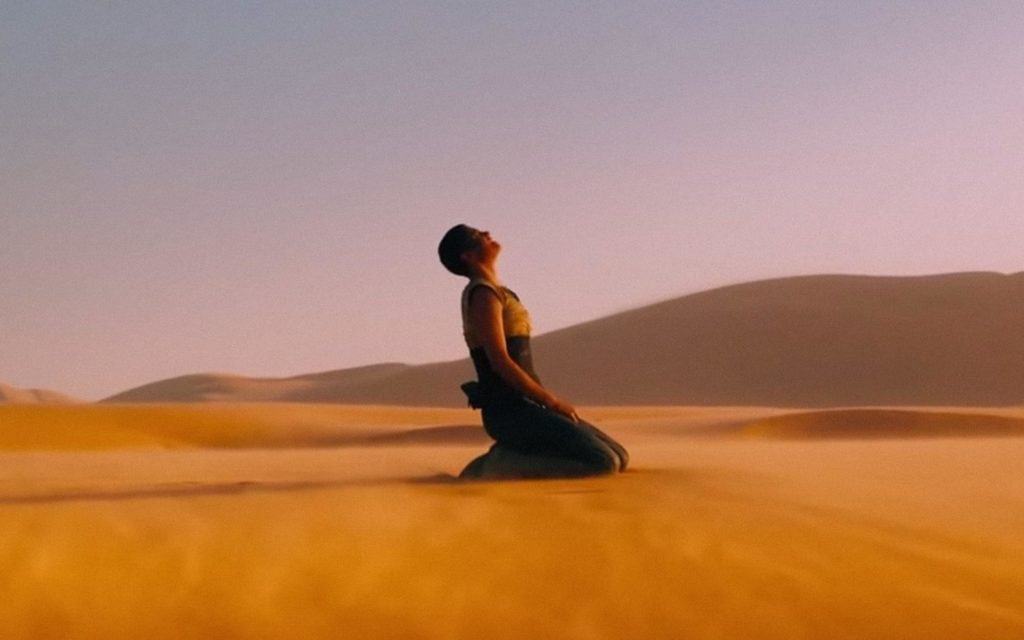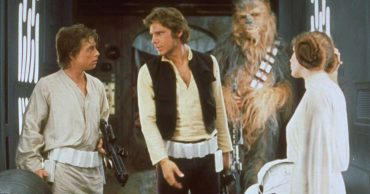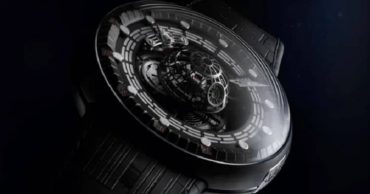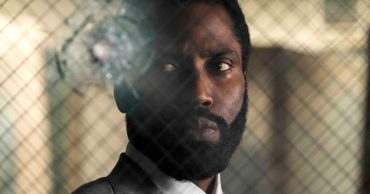
It seems to be human nature to look back on decades passed and find some kind of greater meaning in what we find there: some kind of pattern or purpose or theme. And, of course, it doesn’t much to find exactly that, given that Siegfried Kracauer’s groundbreaking treatise, From Caligari to Hitler, has long-established that we need look no further than the movies to get an idea of what is going on in the larger societies that produce and consume them.
Looking back on the 2010s, it’s very obvious that some very interesting things were bubbling up just under the surface: from #OscarsSoWhite to #MeToo to the political hellscape encompassing the Trump administration. The list that follows (ranked chronologically more so than preferentially) considers both the films’ quality as well as their importance, what they reveal about their craft just as much as what they reveal about the world around them. And for those ambitious few willing to marathon these, it is an absolutely fascinating class of movies to work your way through.

The Social Network (2010) — Over the course of the twentieth century, social media of all stripes have come to dominate our lives. And while there are actually quite a few options to choose from these days (between Twitter and Tumblr and Instagram), none have become so ubiquitous, important and contemptable as Facebook: a reality mirrored in its cutthroat creation as the Harvard-based Hot or Not knockoff made by disgruntled nerd Mark Zuckerberg. Playing out like a modern day Citizen Kane (1941), David Fincher’s meditative The Social Network posits that Zuckerberg, like Kane, was a titan of the communications industry who was paradoxically incapable of communicating with the people in his own life, a revolutionary who found himself more and more isolated in a world that was, itself, more and more plugged into the everyday comings and goings of the website’s users. It is a personal tragedy as much as it is a pyrrhic victory for society as a whole: centering an institution whose machinations continue to manipulate the ways in which we experience the world in ways that are only now starting to fully come to light.

The Avengers (2012) — The cinematic landscape has changed remarkable over the past couple decades: from the rise of the indie scene in the 90’s to the near-universal adoption of digital filmmaking in the 2000s to the pop-cultural dominance of the superhero genres in the 2010s. And while there is a larger arc to take in terms of the growing influence of the genre (going from Blade to X-Men to Spider-Man to Batman Begins), the current age of superheroes is most directly the result of the Marvel Cinematic Universe: particular in the capstone of the MCU’s first phase of movies, The Avengers. Bringing together multiple heroes from multiple disparate franchises into one seminal crossover event, it proved the potency of its trademark blockbuster formula, one in which every movie acts as a sequel, prequel or midquel to every other movie in the larger franchise, constantly driving interest in and demand for these movies while ensuring that no one character or franchise ever feels worn-out or overplayed. After The Avengers, every blockbuster tried to look and sound like a gathering of Earth’s mightiest heroes and every stand-alone blockbuster had to either set-up or tie-into a large cinematic universe. And even though DC is finally starting to figure out a model that works for them after their own disastrous Phase 1 of shared-continuity movies, it seems rather telling of the quality of the Marvel movies (and strength of the Marvel brand) that every would-be challenger to its throne has crashed and burned in the near-decade since this first movie’s release.

Spring Breakers (2013) — Another narrative through-line for this last decade has been the ascent of uniquely Millennial filmmakers, inundating the culture with the garish, tech-fueled trash-aesthetic in much the same way that Lucas and Spielberg reinvented cinema in the 70s and 80s with their movie-brat, blockbuster sensibilities. Coinciding with the emergence of the ingénue production studio A24, which has dominated the 2010s indie scene in much the same way that the MCU has dominated its blockbuster scene, Spring Breakers was a kind of celluloid revelation: a misanthropic indictment of the world and generation it sprang from. And if after watching the trailer for this movie you think that this is the absolute last movie you want to see (or characters that you want to watch a movie about), well, then you’re kind of the perfect audience member for it. After all, that’s the exact pitch that got me to watch the movie and I absolutely adore it now.

The Big Short (2015) — The 2007 subprime mortgage crisis was an economic disaster decades in the making, the fallout of which we will be living with for decades to come. It bottomed out the US’ working class, pushed the country headlong into the service economy that it had been developing into since at least the early 90s and gave us the social and political context that resulted in President Donald Trump. It was a structural failure of unimaginable significance, and everybody should have seen it coming. And, in fact, a few scrappy economists, financiers and outsiders did see it coming. This film, based on the book from Moneyball author Michael Lewis and Anchorman director Adam McKay, breaks down both the simplicity and stupidity of the housing crisis in plain, excoriating and even fun terms, in a style often repeated (e.g., Vice and Bombshell) but never equaled.

Mad Max: Fury Road (2015) — It should come as no surprise to anybody (not even the men) that women have been suffering and struggling for a long time now, and their concerns have historically been brushed aside by the patriarchal social, economic and political structures that rule this country. With the emergence of #MeToo, however, and with a few observant (and sympathetic) filmmakers taking notice of the world around them, we started getting cultural outlets for all of the pain and frustration that had been surging unseen in the US for decades. Serving as the bedrock of films as far-reaching as Wonder Woman (2017) and Hustlers (2019), the latest entry in the hyper-masculine Mad Max series serves as an indictment of the patriarchy and toxic masculinity festering like a wound in the modern psyche: proving once again the prescience of action heroines and the necessity of reinventing of the stories and characters that many of us grew up looking up to for a new generation.

Moonlight (2016) — After 12 Years a Slave (2013) took the 86th Academy Awards by storm — handing out top prizes to Black filmmakers for Best Director, Best Supporting Actress and Best Adapted Screenplay — the Oscars faced a great deal of (deserved) backlash the following year for its refusal to acknowledge the breadth of excellence of non-white films and filmmakers. Despite garnering a well-earned Best Picture nomination that year, the Academy utterly ignored Selma for its resplendent direction (Ava DuVernay), acting (David Oyelowo) and writing (Paul Webb and Ava DuVernay); and even then, that was far more praise than was given to any of the other deserving non-White films that came out that year. 2015 was even worse. Once again, every acting nominee was White and every Best Picture nominee was unquestionably a “White film.” Even when the Academy did see fit to nominate Black films that year, it only did so for the efforts of White filmmakers (Syvester Stallone for Creed and Jonathon Herman, Andrew Berlof, Alan Wenkus and S. Leigh Savidge for Straight Outta Compton). In response, the Academy completely revamped the makeup of their voters, notably welcoming a massive new class of women and filmmakers of color into their midsts. The result was a head-to-head runoff between Moonlight — a quiet, contemplative and emotionally resonant coming of age drama about a gay Black man — and La La Land — a retrograde throwback to the heyday of Hollywood musicals where Ryan Gosling becomes the White Savior of Jazz. Not only did the best film win but, appropriately, it did so in the most dramatic way possible: by first awarding the wrong film, and being corrected by the La La Land team after they had come up to accept the award. It has marked a turning point both for the Academy as an institution and the kinds of non-White stories that are finally seen as awards-worthy. And, beyond even that, it is a sensitive romance that fundamentally changed the kinds of tragic narratives that LGBT couples had been tied to for years.

The Witch (2016) — It’s obvious now, looking back, that the horror movies of the last decade have generally followed a certain theme, one that has largely betrayed the gender-based unease at the heart of the #MeToo movement and its surrounding discourse. These movies have been centrally focused on the troubles befalling women. And, in many cases, this has manifested by filmmakers focusing on the figure of the witch. No longer a wicked antagonist out to bring our heroes low, she has become a reclaimed feminist icon and avenger of wronged women everywhere. And although examples of this about the past decade (Lars von Trier’s Antichrist, Andre Overdal’s The Autopsy of Jane Doe, Luca Guadagnino’s Suspiria), nowhere has this been more central than in Robert Eggers’ The Witch: a visceral indictment of the world in which we live, as seen through the eerie lens of the not-so-distant past.

Get Out (2017) — Undoubtedly the start of many an uncomfortable conversation between friends (and at least one marriage that I can attest to), Get Out made a whole slew of Black-centered anxieties visible to the world in a way that they simply hadn’t been before. Coming from Jordan Peele, a Black filmmaker fed-up with the lack of opportunities afforded to him as an actor-of-color) stood confidently behind the camera to deliver his excoriating portrait of a culture that essentializes, degrades and demeans minorities on a daily basis. The resulting film feels like a fever dream two steps removed from something more radical like Sorry to Bother You (2018): a film with a Hell of a lot to say, made by a filmmaker with very little expectation that he would be allowed to make a follow-up to it. The fact that it launched his career (Us, his second feature, was easily the best movie from 2019), garnered seemingly impossible praise from the industry (Jordan Peele became the first Black man to win the Best Adapted Screenplay Oscar, in addition to the film’s nominations for Best Picture, Best Director and Best Actor, and a near-perfect score on review-aggregator Rotten Tomatoes) and became a quarter of a billion-dollar smash-hit globally despite its dead-zone release in the middle of February.

Black Panther (2018) — As was already mentioned when discussing The Avengers, superheroes have been the defining film genre of the 2010s (despite their comparatively paltry output, relative to Westerns in the studio era and Slashers in the 80s). Despite their rampant popularity and wide-spread critical praise, however, the larger film industry was incredibly reluctant to embrace the form as legitimate and artistic. They were constantly relegated to technical categories at award shows (if they were present at all) and the overall quality of their cast, directors, writers and producers was handwaved away as “kids stuff:” something disposable, whose high box office gross was its own reward. We first got a taste of the changing tides when Logan (2017) got an out-of-nowhere screenplay nomination at the Oscars, but it only took another year before Black Panther, another mid-February blockbuster that plugged directly into the collective consciousness of moviegoers, shattered all expectations for the genre. Nominated for seven Oscars (Picture, Costume Design, Production Design, Original Score, Original Song, Sound Editing and Sound Mixing), of which it won three, it announced to the world that these movies were not going away anytime soon, and that the Academy ought to finally rectify the oversight of the past going forward.

Parasite (2019) — In a lot of ways, it’s hard to talk about Parasite retrospectively as its legacy is still being decided as I write this. It is, after all, the first South Korean movie to ever be nominated for an Oscar (a truly mind-boggling feet, as the nation has been enjoying something of a golden age since the early 2000s), and it might just be the first foreign-language movie to win Best Picture in the upcoming ceremony (it, along with 1917 and Once Upon a Time in Hollywood, comprise the award’s frontrunners), a prospect that Oscar voters have been gradually coming around to since the late 90s and has certainly been helped by the recent diversification of the Academy as a voting body. It is unquestionably directing mainstay Bong Joon-ho’s magnum opus: a film that seamlessly shifts between any number of genres and protagonists as the needs of the film dictate and, like Get Out, has an awful lot on its mind regarding wealth, class and society. It also stands as the most prominent film in the emerging trend of “eat the rich” movies from last year — which also includes Ready or Not (2019), Boyz in the Wood (2019) and the now-delayed The Hunt (2020), to say nothing of the recently announced TV-continuation of the film by HBO — putting it at the forefront of the next few years of cinema.
 Follow Us
Follow Us





